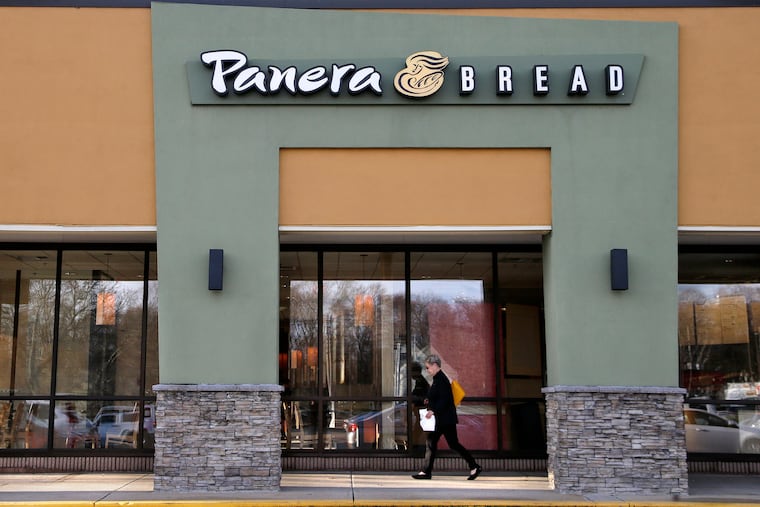Philly college student died after drinking Panera Bread caffeinated lemonade, lawsuit alleges
Sarah Katz, a 21-year-old Penn student, died in September 2022 after consuming the highly caffeinated beverage.

A University of Pennsylvania student’s death last year was caused in part by drinking a highly caffeinated beverage from a Panera Bread location in West Philadelphia, a newly filed lawsuit alleges.
Sarah Katz, 21, died in September 2022 after consuming a Charged Lemonade drink from the company’s store at 40th and Walnut Streets, according to the complaint, which Philadelphia-based law firm Kline & Specter filed Monday in Common Pleas Court on behalf of the woman’s parents, Jill and Michael Katz. The drink contained up to 390 milligrams of caffeine in 30 fluid ounces, along with other stimulants and a high amount of sugar, making it akin to an energy drink, the complaint contends.
Katz was unable to safely consume highly caffeinated beverages due to a heart condition known as long QT syndrome type 1, which she had been diagnosed with as a child. Also called LQT1, the ailment can cause disruptions in the heart’s activity and rhythm, resulting in potentially dangerous arrhythmias.
Doctors recommended Katz avoid energy drinks and other highly caffeinated beverages because those drinks can cause heart issues in people with LQT1 Syndrome. In addition to taking medication to manage her condition, Katz “followed her physicians’ every recommendation” and “never knowingly consumed energy drinks,” the lawsuit says.
But Panera Bread failed to properly disclose the Charged Lemonade’s caffeine content, which contributed to Katz’s death, the lawsuit alleges.
The company said in a statement that it was saddened to learn of Katz’s death.
“Our hearts go out to her family,” a Panera Bread spokesperson said. “At Panera, we strongly believe in transparency around our ingredients. We will work quickly to thoroughly investigate this matter.”
Katz consumed the Charged Lemonade from the company’s West Philadelphia location on Sept. 10 last year, the lawsuit says. She suffered a cardiac arrest an unspecified amount of time later, and was taken to Penn Presbyterian Medical Center. She was pronounced dead at the hospital after a second cardiac arrest.
According to the lawsuit, the caffeine content of Charged Lemonade can range from 260 milligrams in a 20-ounce drink to 390 milligrams in the 30-ounce size. The 30-ounce size has more caffeine and sugar than energy drinks like Red Bull and Monster, but was “not advertised as an ‘energy drink’” at the West Philadelphia location, the lawsuit alleges.
Instead, it was “offered side-by-side with all of Panera’s non-caffeinated and/or less caffeinated drinks.”
Additionally, the lawsuit says, Panera misrepresented the drink as “plant-based and clean with as much caffeine as our Dark Roast Coffee.” Panera Dark Roast Coffee, the suit says, ranges from 161 milligrams of caffeine in 12 ounces to 268 milligrams in 20 ounces.
According to a company spokesperson, the Charged Lemonade and the restaurant’s dark roast coffee have about the same caffeine by volume, but the two drinks are offered in different sizes. A large coffee is 20 ounces, while a large Charged Lemonade is 30 ounces.
The lawsuit alleges that Panera “negligently and recklessly misrepresented” the safety of the drink in their advertising, and knew that potential consumers “would accept the material misrepresentations made ... as true and accurate.” The company, the lawsuit says, engaged in “negligent, reckless, intentional, fraudulent, reckless [sic] and/or outrageous misconduct” that contributed to Katz’s death.
The lawsuit is seeking an unspecified amount in compensatory and punitive damages, as well as interest, court costs, and other relief as determined by the court. A jury trial has been sought in the case.
“Sarah was killed by Panera’s toxic super energy drink,” attorney Elizabeth Crawford said. “It shouldn’t be sold, and if it is sold, it should have an adequate warning. The Katz family wants to prevent this tragedy from happening to someone else.”